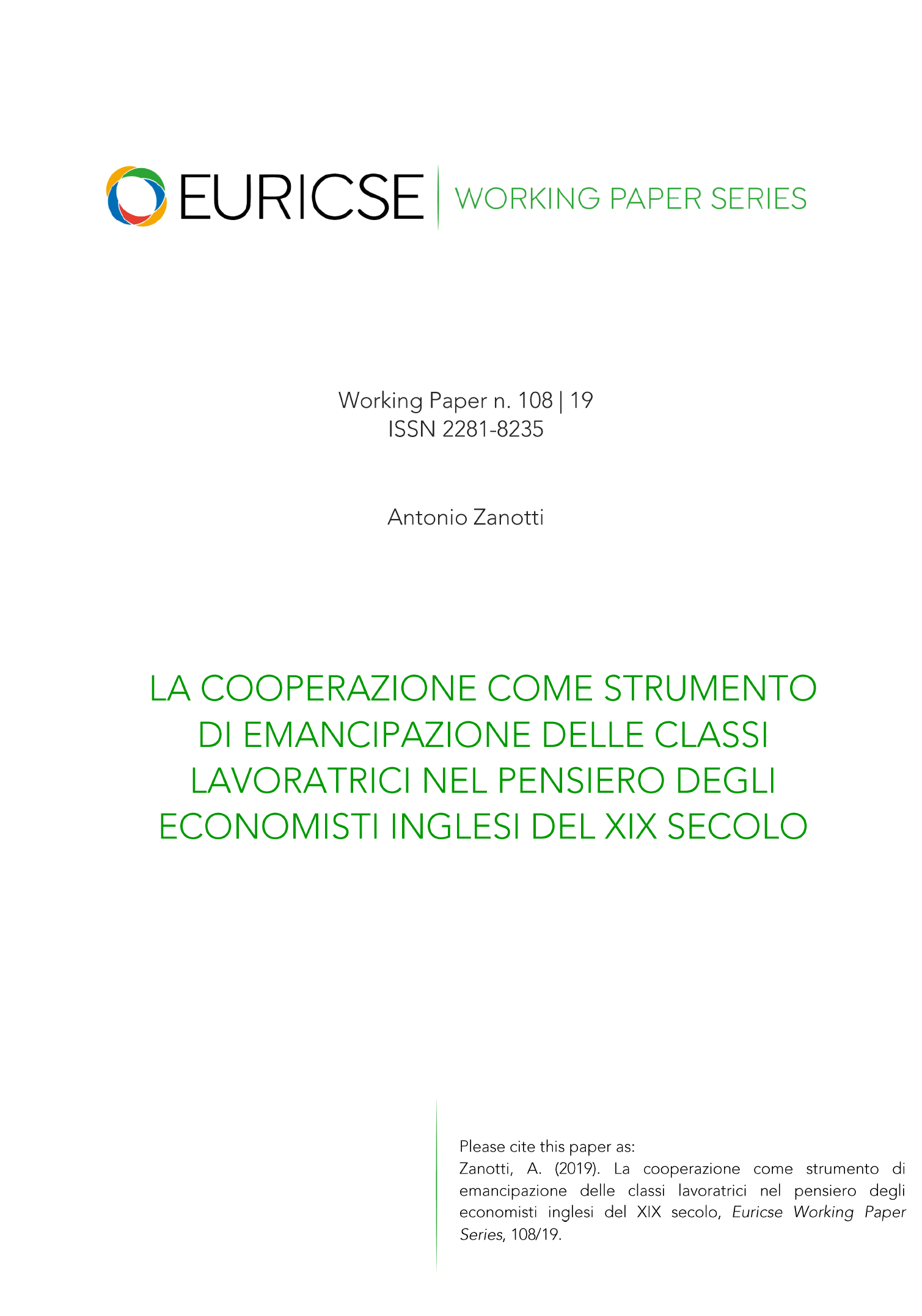WP 108 | 19 Cooperation as a tool for the emancipation of the working classes in the thought of 19th century English economists
The topic of cooperation was widely discussed among 19th century economists. Reconstructing this debate is complex because the concept of cooperation itself underwent profound changes. Initially, the word “cooperation” was used as the opposite of “competition,” believed by utopian socialists to be the cause of worker poverty. Thus, cooperation was understood as a community organized on the basis of shared common values, including the ownership of the means of production itself. By the end of the century, “cooperation” meant instead a specific form of enterprise ownership, different from that based on capital ownership. The protagonists of this research are Ricardo, Mill and Marshall who represent this evolution of the concept of cooperation itself. Ricardo was focused on the concept of cooperation developed by Owen at the turn of the century. Mill represents the turning point, the shift from communitarianism, which he identified with Socialism, to the emergence of the first experiences of labor cooperatives that spread in France from the 1848 revolution. Marshall, finally, had as his frame of reference a growing movement, set within the context of the capitalist economy, but which had taken a new path: cooperation as a union of consumers and not of workers. These studies started from the same question: can cooperation be an instrument for the emancipation of the working classes? For reasons that are still poorly investigated, this demand lost consistency since the 20th century, which also marked a sharp decline in cooperation studies. Only recently, with the crisis that erupted in 2007, does this question seem to have been revived, but in a very tentative way.

